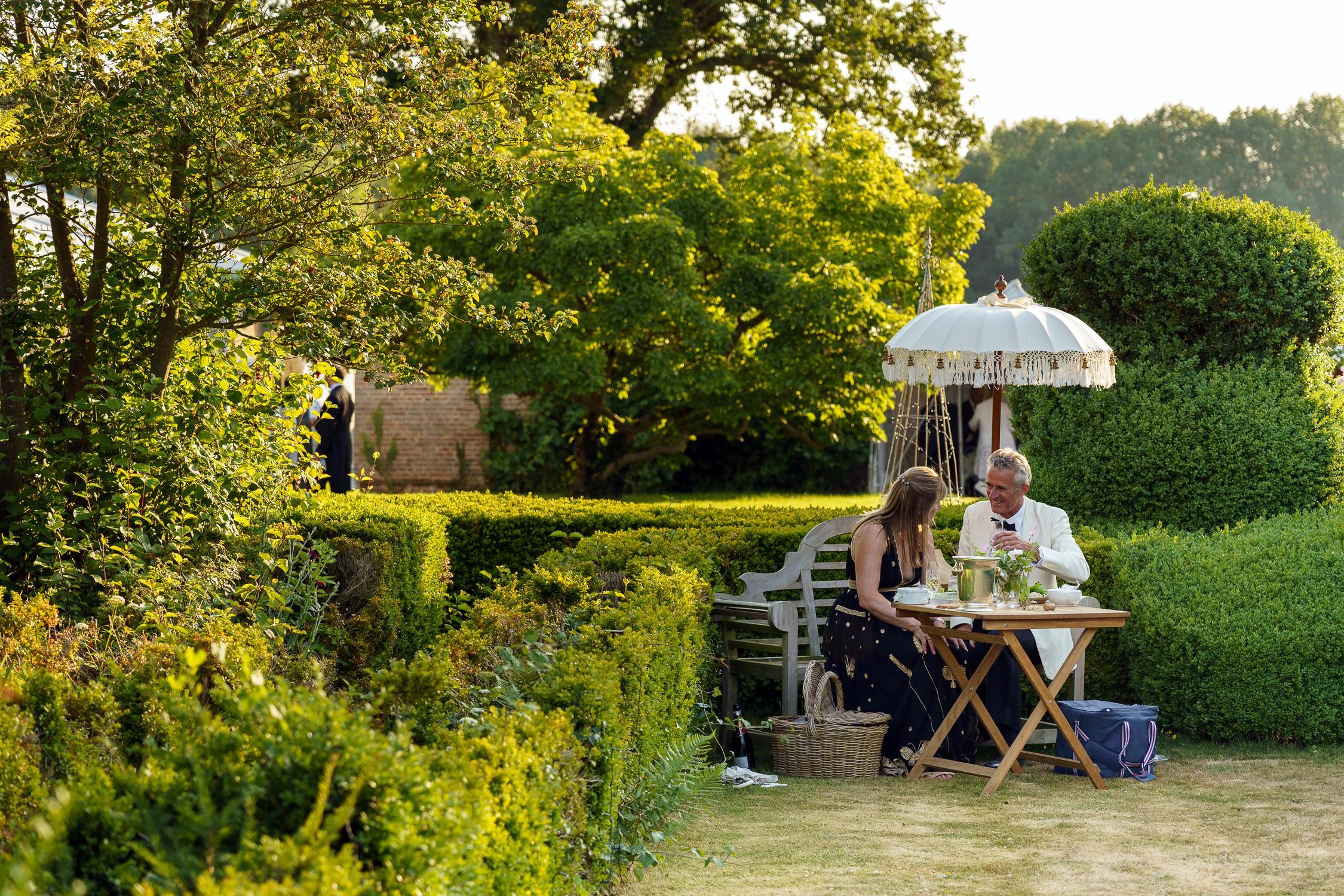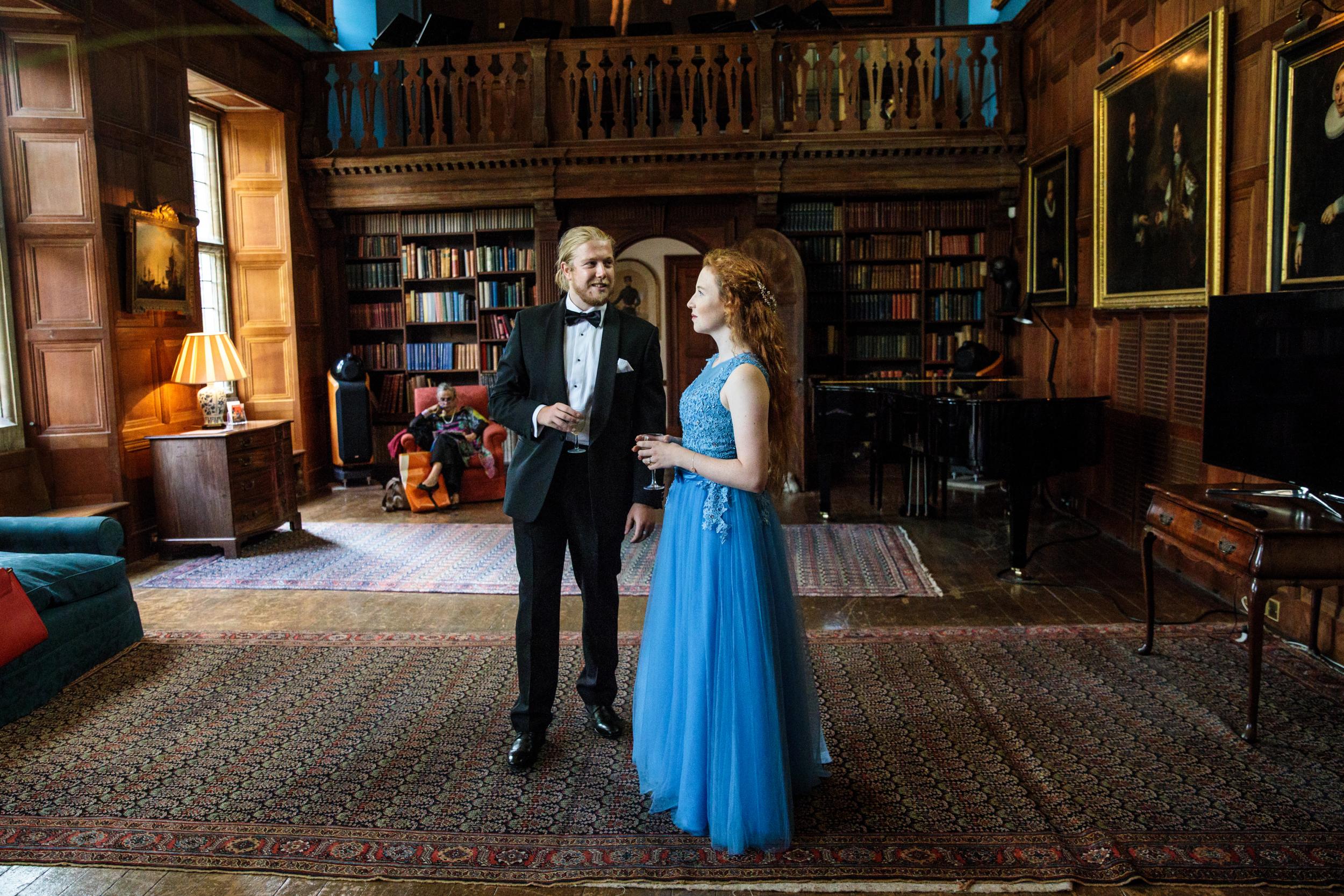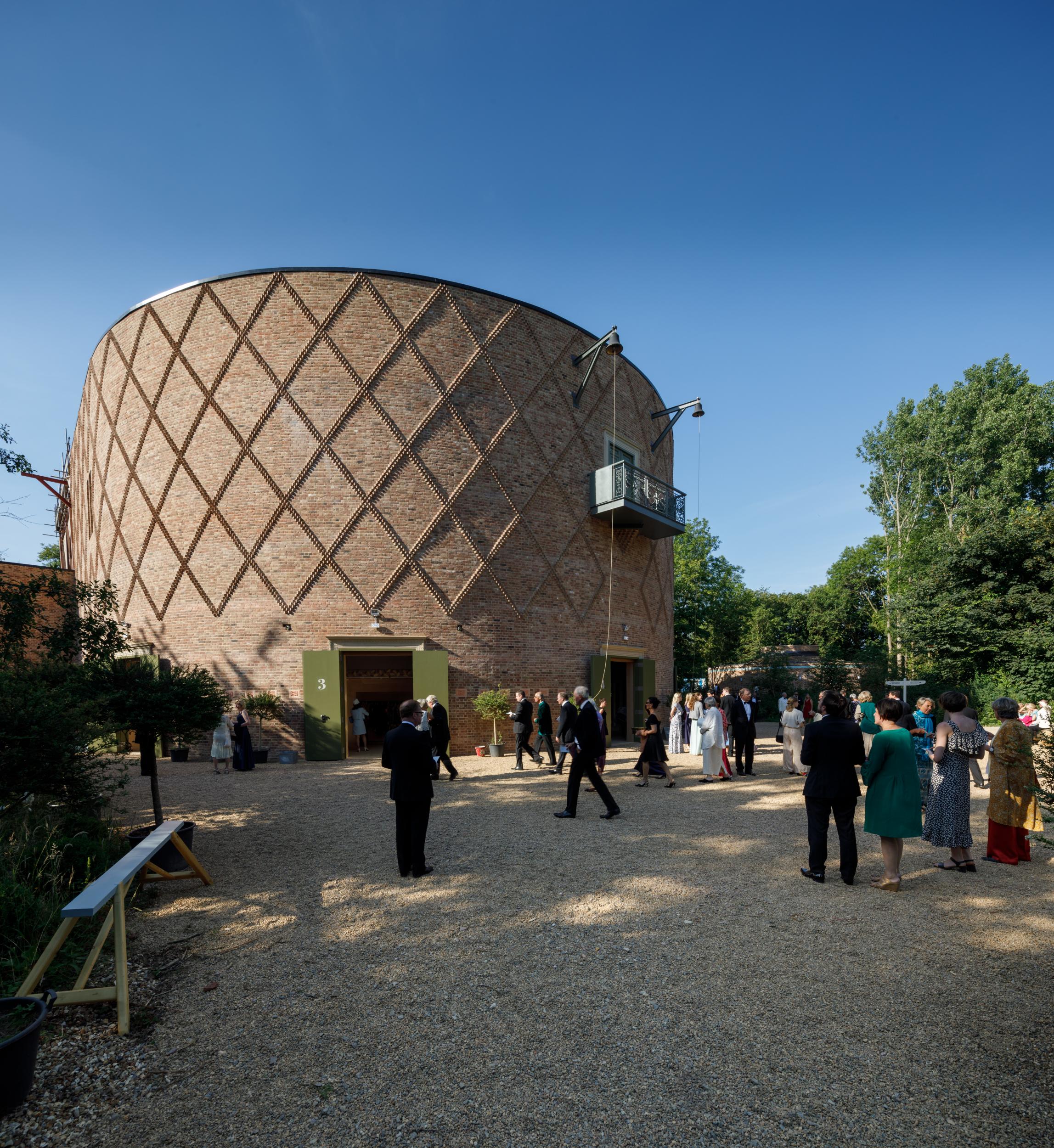Country house opera: Exploring the very essence of English art
With bucolic surroundings – including the occasional sheep – this mode of music is like no other. David Lister explores why Puccini goes so well with Pimm’s and picnics


Tis the season. The season of donning evening dress to sit in the sun in the afternoon. The season of picnics and strolling across graceful, manicured lawns. The season of drinking Pimm’s and champagne. The season of that quintessentially English art form – country house opera.
Yes, there is indeed opera, opera that is usually of a very high calibre with celebrated singers and directors. But at the end of the customary 90-minute intervals to consume those picnics and Pimm’s, it is not unknown for some opera-goers to forget what has happened in the first half, or even which opera they are seeing.
Country house opera is opera like no other. It should be stressed that for all the corporate visitors and aristocracy that the staggeringly high ticket prices (up to £250 at Glyndebourne) ensures, there are still numerous visitors among those categories and well beyond who both love and are highly knowledgeable of opera.
But let’s not be too po-faced about it. It is still fun to watch high society at play in those long intervals. It is still a beautiful feeling to sit in some of the most elegant surroundings and, in the case of Glyndebourne, have a sheep wander to within a few feet of you and after about the 70th minute of the long interval watch a well refreshed opera-goer attempt to converse with it. And it is illuminating to discover that in every case, country house opera is the result of the unbridled enthusiasm of individuals whose eccentricity, determination and passion permeates their venues.
I recently visited the newest kid on the block, Grange Park Opera in West Horsley, Surrey. For those unfamiliar with the tangled web of country house opera, it is necessary to state that Grange Park Opera is not to be confused with Grange Park Opera. The two venues are not that many miles apart, one in Surrey, the other in Hampshire, near Winchester. Wasfi Kani used to run the Hampshire one, but left and took the brand with her and set up the new one in Surrey. As CEO she has personally raised £10m from private donors in just a year.

Brands are important in country house opera, though one must have sympathy for the unfortunate opera-loving motorists who end up at the wrong Grange Park. To be fair the old Grange Park Opera now styles itself The Grange Festival. But an element of confusion remains.
“This is the champagne lawn,” said Ms Kani, showing me round the new Grange Park Opera at West Horsley. These are the very words one hopes to hear from the head of a country house opera venue. “I won’t shake hands,” she added, “I’ve been working on the site this morning and my hands are dirty.” This is also an insight into running a country house opera. The bosses muck in, working in the gardens or even on the building sites in the corners that are still being constructed.
The site of the new Grange Park is actually the property of Bamber Gascoigne, the original presenter of University Challenge and a long time opera aficionado. He was left the Grade I listed medieval manor house, dating from 1425, and its grounds by his great aunt, Mary Duchess of Roxburghe, in 2015, and he has had the opera house built on site. Elizabeth I and Henry VIII both stayed in the mansion, and the grounds are now an oasis of landscaped gardens set in magnificent woods.
Complete with historic walled gardens, a 300-year old orchard filled with mulberry, damson, apple and pear trees and a sprawling ancient house, its five-tiered opera house is the only opera house built in Britain this century.
As Ms Kani puts it: “At night time it is extraordinary, you come out of the opera house and you’re in a wood. I don’t know of any other theatre where you can do that.”
Ms Kani is something of a force of nature and this fledgling opera house, in just its third season, bears the hallmarks of her own brand of startling whimsy. Take the toilets, or “Lavatorium Rotundum” as the signpost nearby has it. In the ladies, there is a flag above every cubicle which goes down when the cubicle is locked. In the gents there is a wire basket above every urinal. “They are for programmes,” says Ms Kani. “I was told that it’s hard for men to hold their programme while having a pee.”
As an opera aficionado myself, and a user of the facilities in the intervals, I can only confirm this cultural observation and applaud her basket innovation.
In the vestibule of the auditorium of the splendid new opera house she is planning to have a model railway under glass stopping at stations such as La Scala and other world-famous opera houses. This, again, feels somewhat unusual for country house opera.
She shrugs. “We’re in entertainment. This is showbiz.”
Yes, country house opera is showbiz, but not as we know it. It is showbiz where the audience is as watchable as the stars on stage. It is showbiz where the charisma and background of the owner or artistic director is a part of the action. Take another notable venue, Garsington. Now Garsington is, of course, not to be confused with Garsington. The original Garsington country house opera was in the village of Garsington, near Oxford. The new Garsington has moved further down the M40 towards London and is at Wormsley, the private Chilterns estate of Mark Getty, the brother of the late John Paul Getty III, who had his ear cut off by kidnappers in a notorious case in the Seventies that had global publicity at the time.
Complete with historic walled gardens, a 300-year old orchard filled with mulberry, damson, apple and pear trees and a sprawling ancient house, its five-tiered opera house is the only opera house built in Britain this century
Mark Getty, one of the world’s richest men, is somewhat reclusive, and not always in this country, so unlikely to be spotted by opera-goers. But they do have the pleasure of entering the estate by motoring down the long drive to the lake and the cricket pitch next to the opera house, with the marquees alongside it serving as interval restaurants.
The cricket pitch has sported such part-time cricketers as Getty’s chum Mick Jagger. They also have the pleasure of watching a performance in one of the only opera houses in the world that receives the daylight for its opening couple of hours, the performance rather magically becoming more intense as night falls.
If Getty comes from a particularly eccentric family, he has a rival in that department in the particularly brilliant founder of Longborough Opera, beautifully situated in the heart of the Cotswolds. Martin Graham, now well into his seventies, started his opera festival in his cowshed in 1991 and has run it with his wife Lizzie before now handing over the reins, in true country house opera dynastic style, to their daughter Polly.
Martin Graham is perhaps the most unusual (and entertaining) of the country house opera founders. A local man, he started as a builder’s mate in the village, became a property developer (and accomplished bricklayer) and is another of the country house elite that wasn’t afraid to get his hands dirty. He built much of his house himself. Longborough has presented Wagner’s The Ring, an astonishing achievement for a small country opera house, and has an international reputation. Chat to Martin Graham, and one minute you will be hearing about his lifelong passion for Wagner, the next will be anecdotes from the building trade. He certainly tells of how in his labourer days he once played a recording of La Boheme on the building site, and fellow builders threw bricks at the tape machine until they too became infected by his passion.

At Longborough, as with the other small country house operas, no one is too grand to muck in. One top international soprano who was there for a season recalled: “The atmosphere is just so different. I’ve found Lizzie scrubbing toilets clean. Her kids are out selling tickets. There’s a real feeling of everyone mucking in.”
And, of course, like other country house operas they have to find accommodation for the singers. Some are billeted in their house, where one of Lizzie’s many tasks is to supervise the sheet changing. Others go to local friends of the Grahams, who take in the tenants for a couple of free tickets.
And then there is the daddy of them all, Glyndebourne. Bigger than all its rivals and with many decades more history, with its lake, meadows, more species of flowers than one can name, and, almost inevitably, a croquet lawn. It is an unforgettable sight on the meandering South Downs. A true family dynasty, it is run by Gus Christie, the affable grandson of the founder John Christie (John’s son and Gus’s father Sir George Christie ran the show in between).
Gus can certainly boast that he has embraced the art form. So captivated was he with the acclaimed soprano Danielle de Niese, when she appeared at Glyndebourne, that he married her. Being literally “lady of the manor” as well as a regular star at the venue holds no worries for her. She told me when I spoke to her before one of her starring roles there a few seasons ago: “Of course, marriage has definitely added another dimension. But there’s no pressure on either side. I will not be at the long bar having drinks the night before a performance.
“I have to take care of myself. It’s about self-preservation. I will do some entertaining with Gus. I love to support him and be on his arm. It’s part of my marriage. But the decision I make about doing an opera at Glyndebourne is about the casting. There have been ones where I have said no. My professional life shouldn’t be an influence on whether I spend time at home. My career is my whole life’s blood. It’s my calling.”

For all the passion of those who run these venues, one often senses a hint of embarrassment that with prices so high because of a lack of any public funding, the audiences tend to be wealthy. To spread the word, and just maybe to alleviate consciences, several of the venues do work outside their home bases, from Glyndebourne Touring Opera to a new project by Garsington in London’s inner city. And, somewhat tediously, there are the ritual announcements that, of course, one does not need to dress up.
This tends to ignore the fact that people actually rather like dressing up for one delicious summer outing. And I have noticed that the very occasional person who has taken Glyndebourne at their word when they have said this, tends to stand out like the man in the Batman cartoon.
Much better to allow that country house opera is expensive, but is a chance to enjoy the finest music in the finest finery. It actually adds to the sense of occasion. And the sense of occasion will be as marked this year as any with a superlative range of operas from, to pick just a few to show that range, Don Carlo and Porgy and Bess at Grange Park, The Damnation of Faust and The Barber of Seville at Glyndebourne, The Marriage of Figaro and a real rarity, a UK stage premiere of Offenbach’s Fantasio at Garsington. And, of course, the Grahams’ passion for Wagner shows no let up at Longborough with Das Rheingold among this year’s offerings.
There are other notable productions at other notable country house operas, of course, with good whispers already about A Midsummer Night’s Dream at Nevill Holt’s Riba-nominated new theatre in Leicestershire.
But the joy of country house opera is that what’s on stage is not the total sum of the day’s enjoyment. Yes, the productions can be as memorable as anything one sees at the Royal Opera House or ENO. But a visit leaves one with a host of other special memories. Not just the glorious settings, the walks around the lakes, the picnics and the Pimms, the opportunity sometimes to wander in a room or two of the stately homes adjoining the specially constructed opera house, and always the people-watching, the observation of high society in cultural mode, and the moments that only country house opera can provide.
I can’t quite banish from my mind that a Glyndebourne insider confided in me that there is a corner window in the administrative wing where staff can, and do, see over the boundaries of the lawns into the bushes where occasionally audience members wander when they get a little too amorous by around the 80th minute of the long interval.

I shall also never forget a performance of Mozart’s The Marriage of Figaro at the old Garsington. The side of the auditorium gave the audience a view of the surrounding countryside, and sight and sound of the elements. That night in the second half a storm blew up, and as lightning struck and a ferocious thunderclap resounded, the surtitles above the stage showed that the singers were singing the words: “All is peace, all is harmony.”
Only in the distinctive and unforgettable setting of country house opera could that line have brought the house down.
Join our commenting forum
Join thought-provoking conversations, follow other Independent readers and see their replies
Comments
Bookmark popover
Removed from bookmarks